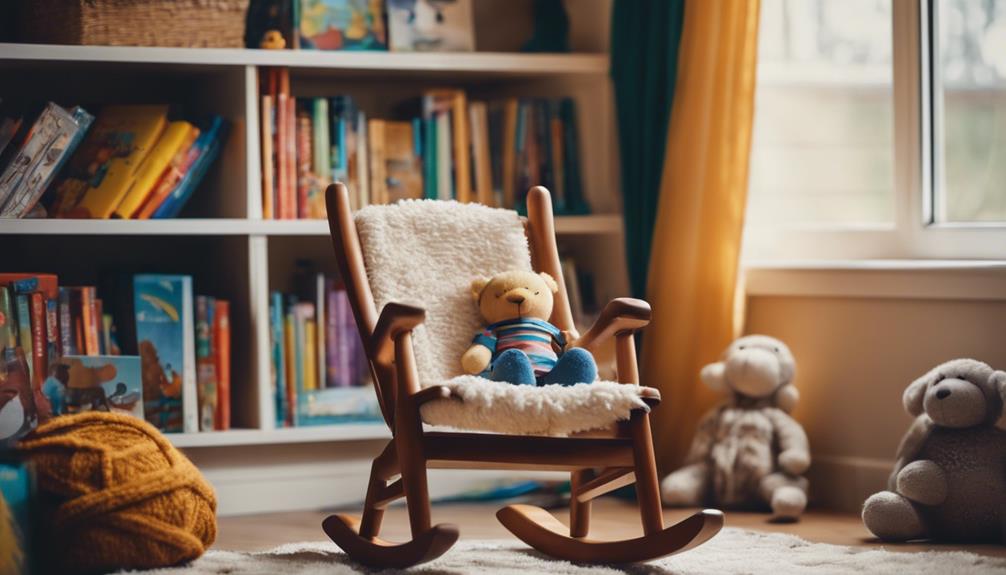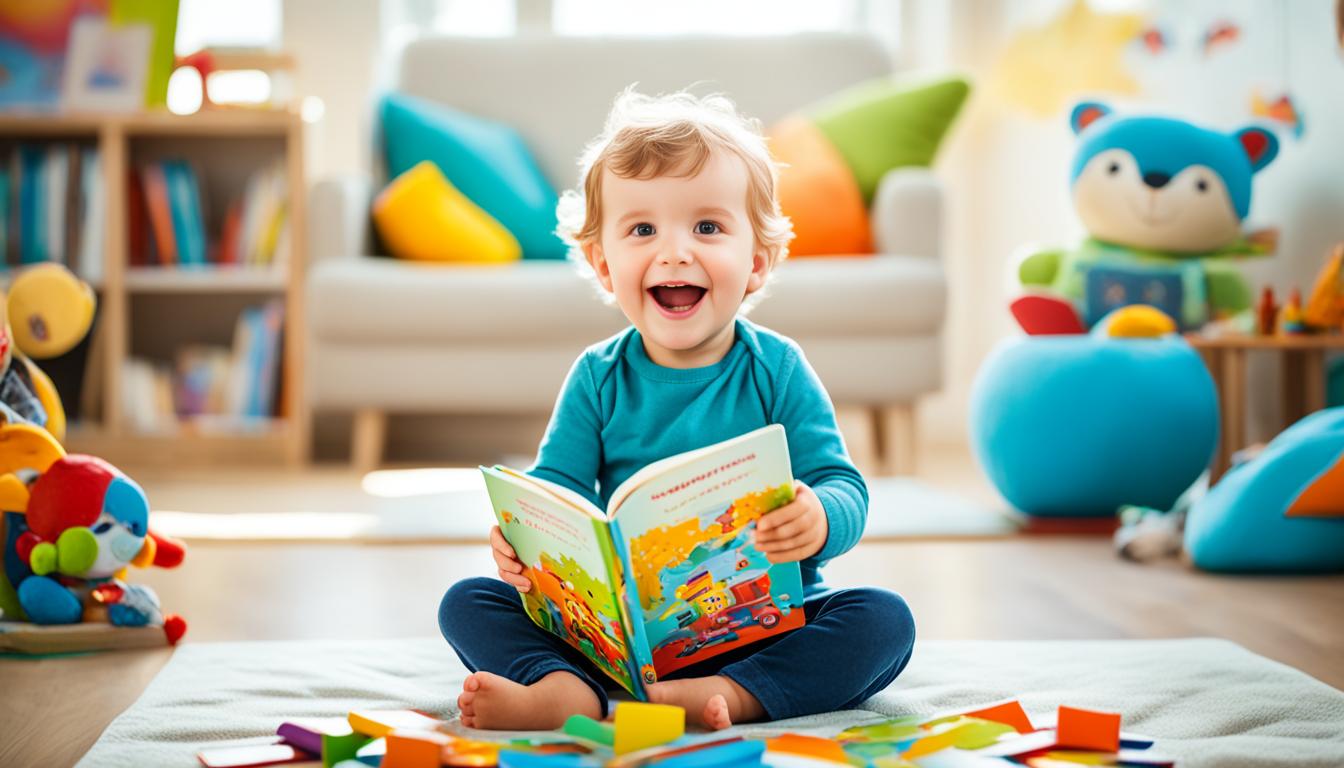Talking to your baby from birth is vital because it helps build their vocabulary and strengthens communication skills. Engaging in meaningful conversations, describing actions, and singing during routines expose them to rich language, which can help close the 30 million word gap. Regular, active interactions also boost their understanding and connection. If you keep learning about how everyday words matter, you’ll discover simple ways to support their early language development.
Key Takeaways
- Talking to your baby daily builds vocabulary and language skills, helping close the 30 million word gap.
- Conversational interactions stimulate brain development and improve early communication abilities.
- Routine activities like feeding and dressing are effective opportunities for meaningful language exposure.
- Regular, rich language experiences promote better understanding and future academic success.
- Consistent talking and active engagement foster stronger connections and early speech development.

Talking to your baby from an early age can considerably influence their language development and help close the word gap. The earlier you start engaging in conversations, the more you boost your child’s ability to understand and use language effectively. Early language development isn’t just about the words you say; it’s about creating meaningful conversational interactions that stimulate their brain and foster communication skills. When you talk to your baby often, you help them recognize sounds, words, and patterns that are essential for language learning.
Every time you describe what you’re doing, comment on your surroundings, or ask simple questions, you’re building a foundation for their vocabulary. These conversational interactions serve as vital stepping stones for your baby to understand how language works and to develop their own speech. It’s not necessary for your baby to respond right away; what matters is that they are exposed to rich and varied language. When you narrate your day or read aloud, you introduce new words and concepts that they might not hear otherwise.
Research shows that children who experience more conversational interactions with adults tend to develop stronger language skills and larger vocabularies. This is especially important in the context of the 30 million word gap, which highlights the disparity in words heard by children from different socioeconomic backgrounds. By engaging in regular, meaningful conversations with your baby, you can help bridge this gap and give them a better start in life.
You don’t need to wait for perfect moments—everyday routines are opportunities for language learning. While feeding, bathing, or dressing your baby, describe what you’re doing, name objects, or sing songs. These simple acts of talking and listening reinforce language skills and foster a sense of connection. Remember, your tone, facial expressions, and gestures add meaning and help your baby understand context and emotion, making your interactions more impactful.
Use daily routines like feeding and dressing to talk, sing, and connect with your baby for early language growth.
Additionally, understanding how beginners guides can provide practical tips for effective communication can empower you to make your interactions even more beneficial. Consistency is key. The more you talk to your baby, the more familiar they become with language patterns and sounds. Over time, this exposure encourages them to imitate words, develop their vocabulary, and improve their speech clarity. So, make it a habit to talk, sing, and read with your little one every day. Your voice is one of their most powerful tools in building early language skills, and your active participation directly influences their future communication success.
Frequently Asked Questions
How Early Should I Start Talking to My Baby?
You should start talking to your baby as early as possible, even from birth. Early language development begins with simple sounds and facial expressions, helping your baby understand communication cues. When you talk to your baby regularly, you encourage their language skills and bonding. Respond to baby communication cues like cooing or babbling, and describe what you’re doing. The more you engage, the better your baby’s language foundation will be.
Does Talking to My Baby Improve Their Future Success?
Imagine a parent talking to their baby daily, fostering both language development and emotional bonding. This interaction helps your child develop stronger communication skills, which are linked to future success. Studies show that early talking boosts vocabulary and social skills, setting a foundation for school achievement and relationships. So, yes—talking to your baby now can profoundly impact their future, making them more confident and better prepared for life’s challenges.
Are There Specific Words or Phrases I Should Focus On?
You should focus on using specific vocabulary and engaging phrases that capture your baby’s attention. Talk about everyday objects, actions, and emotions to build their understanding. Incorporate simple, descriptive words like “big,” “happy,” or “roll over,” and ask questions to encourage interaction. Repeating these words in different contexts helps your baby learn. The goal is to create meaningful conversations that stimulate their language development effectively.
How Can I Encourage My Baby to Respond or Engage?
You’re opening a can of worms when asking how to encourage your baby to respond. Focus on interactive play and responsive listening—these are your best tools. Talk to your baby during daily routines, imitate their sounds, and respond warmly to their cues. This active engagement helps your baby feel heard and encourages them to respond more. Keep it fun and consistent, and you’ll see their responses blossom over time.
What if I Don’T Speak the Same Language as My Baby?
If you don’t speak the same language as your baby, don’t worry—you’re still supporting their multilingual development. Use gestures, facial expressions, and tone of voice to communicate, and keep talking even if there are language barriers. Your presence and engagement matter more than words alone. Reading books with pictures, singing, and playing together help build strong bonds and lay the foundation for your child’s language skills across multiple languages.
Conclusion
Remember, every word you speak is like planting a seed in your baby’s mind. The 30 million word gap shows just how powerful your conversations are — shaping their future one word at a time. By talking, singing, and reading, you’re building a bridge to their success. So, keep the chatter going; it’s the key to revealing their brightest potential. Your voice is the most important gift you can give on their journey to grow and thrive.










